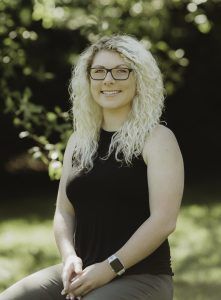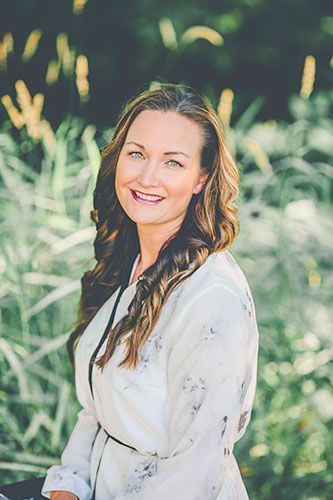The Pain of Childhood Anxiety
By: Becky Meline, LIMHP LISW IADC
Anxiety Disorders in Children
Anxiety disorders in children and adolescence is the most commonly diagnosed mental health disorder in the United States with nearly 32% of adolescents dealing with anxiety ( Journal of the American Academy of Child and Adolescent Psychiatry , 2010). This number does not seem to be slowing down either. Although anxiety impacts a large number of families, it comes with many complex emotions and questions about how to help the child you may not recognize anymore. There are different types of anxiety disorders that can be diagnosed such as Panic Disorder, Separation Anxiety Disorder and Social Anxiety to name a few; but I’m going to focus on one of the most common which is Generalized Anxiety Disorder.
What Would I See in My Child?
- Worry . Generalized Anxiety Disorder is strongly characterized by excessive worry about everyday things that seem to be blown out of proportion. Often times they are worried about their own performance in areas such as school and sports. These worry thoughts are strict and rigid, with very little flexibility to view it a different way. I call them “yeah butters.” When I compliment them on something it is quickly interrupted with a “yeah but I could have done…”
- Sleep . You may see problems with falling asleep at night, and feeling restless. It can be difficult for their minds to unwind and they either replay the days activities, or worry about tomorrows.
- Physical symptoms are also very common such as feeling tired or fatigued, and having frequent complaints of headaches and stomachaches. Anxiety is often stored in these two areas for kids.
- Isolation . Children can become distant from friends, or withdraw from social activities; wanting to stay home instead.
- School Struggles . You may see problems with concentrating, or disruptive behavior in the classroom; some kids will avoid or refuse to go to school so they don’t have to feel the anxiety or have to worry.
Diagnosis of GAD
Diagnosis of Generalized Anxiety Disorder would come from a mental health professional or doctor who can assess your child’s symptoms. The following information is provided from the Diagnostic and Statistic Manual 5; which is the manual that helps direct diagnosis. Excessive anxiety and worry would need to be present for more days than not for at least 6 months, and cause distress for the child in more than one setting such as school and home life (American Psychiatric Association, 2013).
The anxiety and worry in children is associated with one or more of the following symptoms:
- Restlessness, feeling keyed up or on edge
- Being easily fatigued
- Difficulty concentrating or mind going blank
- Irritability
- Muscle tension
- Sleep disturbance
These symptoms are not better accounted for by an effect of a medical diagnosis or is substance induced such as being under the influence of a drug (American Psychiatric Association, 2013).
Impact on Life
The impact of anxiety on a child’s life can be so painful to watch for the parents! Some say that they hardly recognize their once carefree child who now seems captive to their feelings. Childhood and adolescence is the time when independence and autonomy dominate the developmental period, yet due to their anxiety, some kids avoid social activities with peers and may seem more clingy to adults. They may refuse to go to parties or sleepovers; or quit their activities or sports. This can lead to frustration for the parents as they try to figure out how to get things back to the way they once were.
Treatments for Generalized Anxiety Disorder
Cognitive-Behavioral Therapy (CBT)
CBT is a type of therapy that has been shown by extensive research to be one of the best forms of therapy to treat anxiety. Cognitive-Behavioral Therapy basically means that what we think, and what we do, impacts how we feel; and this can become a vicious cycle. Everybody views life through a different lens, and that lens is created by our past experiences. For example, if we’ve had negative experiences making friends, we might begin to believe that we are “awkward and no one likes me.” Every interaction that we have, is then viewed through that lens and we look for reasons why an experience fits into our belief system as opposed to challenging it. As humans, our brain is wired to believe that what we think, is true. CBT helps to challenge those negative beliefs and change them to more helpful and accurate interpretations of our experiences.
Medication
Medication can be helpful in managing the child’s anxiety, especially in conjunction with therapy. In fact, when combined, it has been reported as being some of the highest success rates for treatment. I get a lot of mixed emotions from parents on starting their kids on medication; but the reality is that some kids need to alleviate some of the symptoms in order to really benefit from therapy. They are then able to focus on learning the interventions and coping skills and have more energy to practice.
Parental Support
Parental support is in my opinion, a huge predictor of success in any kind of treatment for youth and adolescents. I always tell the parents that even if I performed magic in session for 1 hour a week; you still have 167 more hours than I do that week to be able to coach and support your child. The math is overwhelmingly on your side; I like to think of it as I’m teaching the parents to be the therapist until the child can take on the role of being their own therapist. As a parent, it is natural to feel horrible watching your child go through the pain of anxiety. Many parents, although it’s with good intentions, will often try to remove all areas of worry for the child in an attempt to make things better. In the short-term this does help to alleviate the anxiety, but unfortunately it reinforces it in the long-term. Your goal shouldn’t be to remove the anxiety, but to help the child gain mastery by coping through the anxiety. By doing this, the fear, or anxiety of a certain situation, person, etc. will decrease and eventually go away.
Steps to Get Started
Whether reading this brought things to your awareness that you never knew, or it confirmed some concerns that you already had; here are some tips to get started. The sooner you can help your child with their anxiety, the better!
Take this free anxiety screener here to see if your child has some symptoms of an anxiety disorder
Contact a Mental Health professional to complete a thorough assessment of your child’s symptoms and recommend the appropriate treatment to help the child and the family function better.
Talk to your pediatrician or a child psychiatrist about the symptoms and see if medication may be appropriate.
Be patient and supportive of the child and their struggles, they are real!
Resources
American Psychiatric Association. (2013). Diagnostic and statistical manual of mental disorders (5th ed.). Washington, DC: Author.
Merikangas, K.R. (2010). Lifetime Prevalence of Mental Disorders in US Adolescents: Results from the National Comorbidity Study-Adolescent Supplement (NCS-A). Journal of the American Academy of Child and Adolescent Psychiatry , 49. https://www.ncbi.nlm.nih.gov/pmc/articles/PMC2946114/
Becky began her journey into this profession at the University of South Dakota as a student-athlete where she received her bachelor’s degree in psychology and played volleyball for the Coyotes. She was a four year starter and held the universities career kill record for 11 years. She was Conference Player of the Year her senior year and awarded Female Athlete of the Year for USD in 2004. For the past 9 years she has practiced therapy with adults, and specialized in the treatment of adolescents and children. She moved into a dual role 4 years ago as a clinician and a Clinical Supervisor overseeing a community mental health clinic in Iowa; and has a private practice Focus Therapy in Omaha, NE. For more information on Becky and the services she provides visit the website at focustherapyomaha.com
The post The Pain of Childhood Anxiety appeared first on Focus Therapy.



